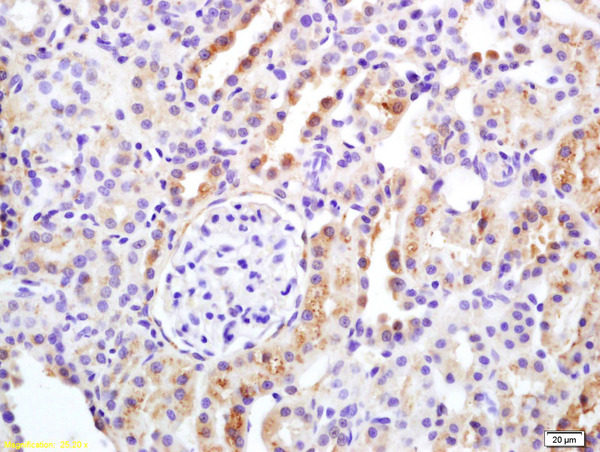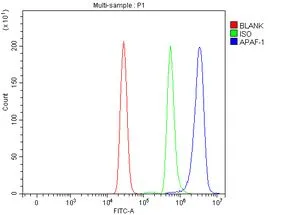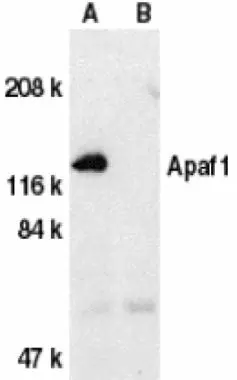
Western blot analysis of Apaf1 in human heart tissue lysate with Apaf1 (CT) antibody (GTX22000) at 1μg/ml in the absence (A) or presence (B) of blocking peptide.
APAF1 antibody
GTX22000
ApplicationsWestern Blot, ELISA, ImmunoHistoChemistry, ImmunoHistoChemistry Paraffin
Product group Antibodies
ReactivityHuman, Mouse, Rat
TargetAPAF1
Overview
- SupplierGeneTex
- Product NameAPAF1 antibody
- Delivery Days Customer9
- Application Supplier NoteWB: 1-10microg/ml. *Optimal dilutions/concentrations should be determined by the researcher.Not tested in other applications.
- ApplicationsWestern Blot, ELISA, ImmunoHistoChemistry, ImmunoHistoChemistry Paraffin
- CertificationResearch Use Only
- ClonalityPolyclonal
- ConjugateUnconjugated
- Gene ID317
- Target nameAPAF1
- Target descriptionapoptotic peptidase activating factor 1
- Target synonymsAPAF-1, CED4, apoptotic protease-activating factor 1
- HostRabbit
- IsotypeIgG
- Protein IDO14727
- Protein NameApoptotic protease-activating factor 1
- Scientific DescriptionThis gene encodes a cytoplasmic protein that initiates apoptosis. This protein contains several copies of the WD-40 domain, a caspase recruitment domain (CARD), and an ATPase domain (NB-ARC). Upon binding cytochrome c and dATP, this protein forms an oligomeric apoptosome. The apoptosome binds and cleaves caspase 9 preproprotein, releasing its mature, activated form. Activated caspase 9 stimulates the subsequent caspase cascade that commits the cell to apoptosis. Alternative splicing results in several transcript variants encoding different isoforms. [provided by RefSeq, Jul 2008]
- ReactivityHuman, Mouse, Rat
- Storage Instruction-20°C or -80°C,2°C to 8°C
- UNSPSC41116161
References
- Metformin triggers the intrinsic apoptotic response in human AGS gastric adenocarcinoma cells by activating AMPK and suppressing mTOR/AKT signaling. Lu CC et al., 2019 Apr, Int J OncolRead this paper

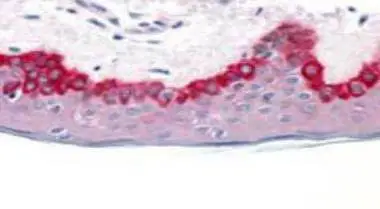




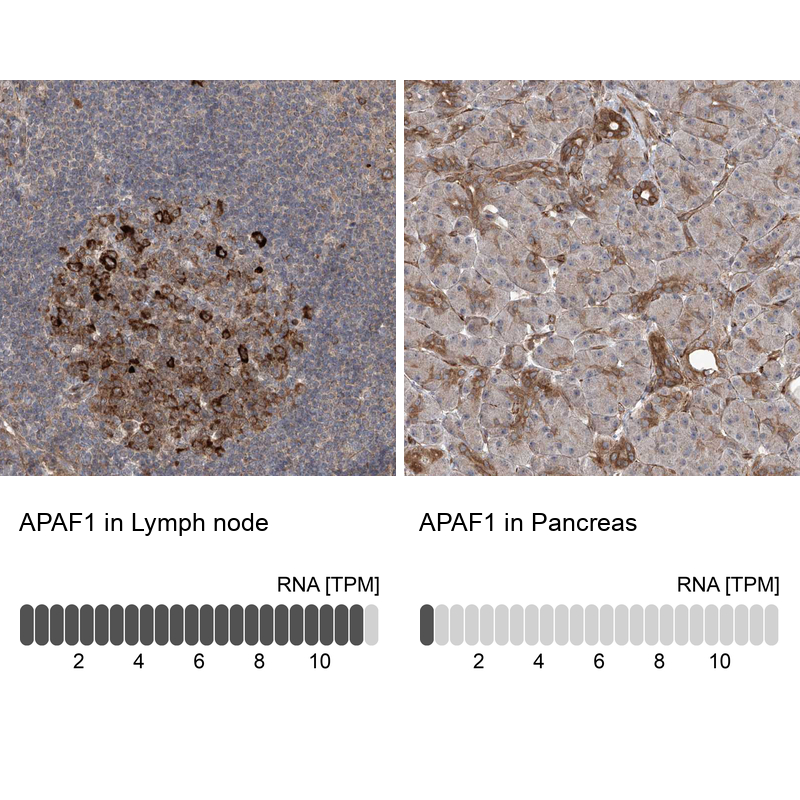

![APAF1 antibody [C3], C-term detects APAF1 protein at cytoplasm in rat liver by immunohistochemical analysis. Sample: Paraffin-embedded rat liver. APAF1 antibody [C3], C-term (GTX101067) diluted at 1:400.
Antigen Retrieval: Citrate buffer, pH 6.0, 15 min](https://www.genetex.com/upload/website/prouct_img/normal/GTX101067/GTX101067_40359_20160713_IHC-P_R_w_23060100_579.webp)
